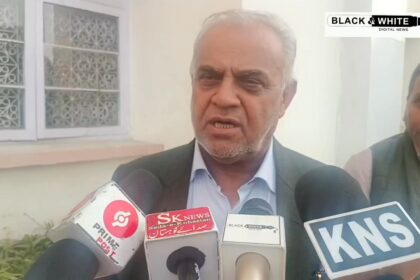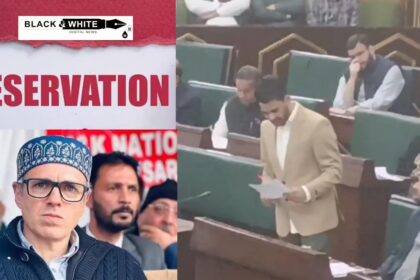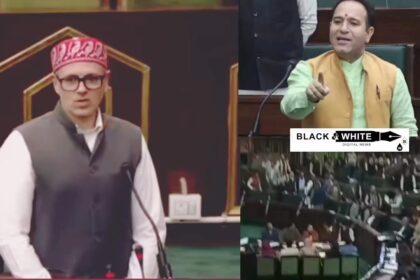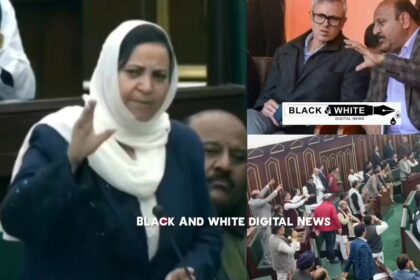Doors Unlocked: Over 83,000 Non‑Locals Secure Domicile Status in Jammu & Kashmir.
||Black and White Digital News||
||Tejveer Singh April 09, 2025||
On Wednesday in Srinagar, the Jammu & Kashmir administration revealed a remarkable surge in domicile registrations, announcing that 83,742 domicile certificates have been conferred upon individuals hailing from beyond the erstwhile state’s borders over the past two years. In its written reply to MLA Waheed Ur Rehman Para, the government further disclosed that a staggering 3,512,184 domicile certificates in total have been issued across the Union Territory during this period—underscoring a seismic shift in residency patterns and the transformative potential of the domicile policy.
Unprecedented Uptake:
Since the domicile regulations were revamped in 2020, the flow of applications has steadily climbed, culminating in an average issuance of nearly 1.75 million certificates per year. Of these, the 83,742 granted to non-state subjects represent individuals who previously lacked any formal tie to Jammu & Kashmir but now possess the same civil and property rights as long‑standing residents. This influx reflects both increased interest in the region’s economic opportunities and the administration’s concerted efforts to integrate newcomers into its socio‑political fabric.
Legislative Scrutiny and Transparency:
MLA Waheed Ur Rehman Para’s query sought to illuminate the scale of non‑local enrolment under the domicile scheme—a question the government addressed with full transparency. By laying bare the precise figures, the administration has invited robust public debate on the policy’s objectives, merits, and long‑term implications for Jammu & Kashmir’s demographic composition.
The Power of the Domicile Certificate:
A domicile certificate in Jammu & Kashmir serves as more than just a residency document; it is a gateway to a suite of rights and privileges previously reserved for native inhabitants:
Property Ownership: Certificate holders can purchase and inherit land and real estate—rights that were tightly regulated under the old state’s constitution.
Government Employment: Access to local government jobs and educational institutions is now open, leveling the playing field for newcomers and long‑term residents alike.
Educational Quotas: Candidates with domicile status benefit from reserved seats in colleges and universities, fostering educational diversity and opportunity.
Business and Investment: With full legal recognition, non‑locals can establish enterprises, invest in local markets, and participate in economic development initiatives.
These privileges underscore the domicile certificate’s role as a catalyst for individual advancement and regional growth. By extending these rights beyond historic boundaries, the government aims to spur investment, create jobs, and weave a more inclusive social tapestry.
Broader Implications:
The infusion of non‑local domicile holders may reshape Jammu & Kashmir’s demographic contours over time, introducing new skills, capital, and cultural perspectives. Critics warn of potential strains on infrastructure and resources, while proponents celebrate the policy as a means to accelerate development and foster national integration.
Looking Ahead:
As Jammu & Kashmir continues to navigate its post‑reorganization trajectory, the domicile certificate will remain central to debates over identity, governance, and economic strategy. With over 3.5 million certificates issued in two years—nearly 2.4% of India’s population—the policy’s ripple effects are poised to influence electoral politics, land markets, and community dynamics for years to come.
In granting 83,742 non‑locals the keys to the Union Territory, the government has not only redrawn the map of residency but also ignited fresh conversations about who belongs, who benefits, and how best to balance tradition with transformation in this mountainous frontier.
Jammu and Kashmir
Omar Abdullah
Office of LG, J&K
Sunil Sharma
Sat Sharma CA
Mehbooba Mufti
Altaf Bukhari
Deputy CM Surinder choudhary
Ankur Sharma
Sakina Itoo
Dr Farooq Abdullah
Tanvir Sadiq
Raman Bhalla









